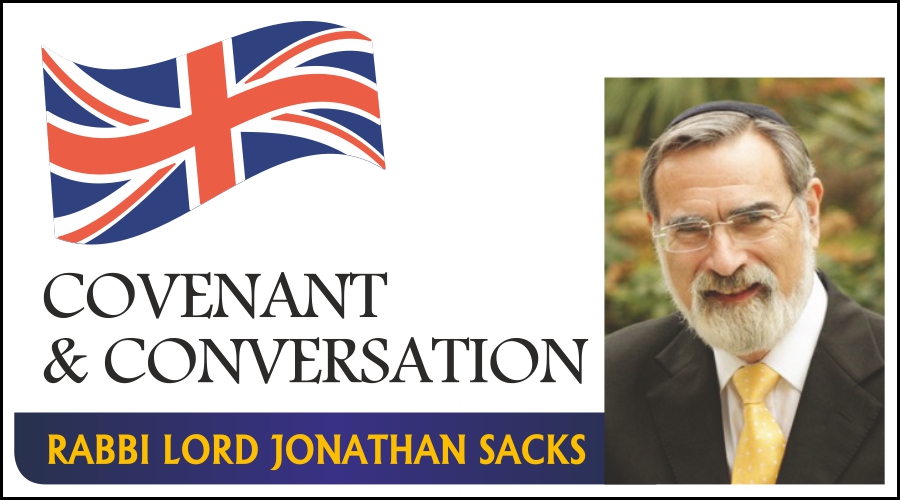It’s a haunting question. Why did Yitzchak love Eisav? The verse says so explicitly: “Yitzchak, who had a taste for wild game, loved Eisav, but Rivka loved Yaakov” (Bereishis 25:28). Whichever way we read this verse, it is perplexing. If we read it literally, it suggests that Yitzchak’s affections were governed by no more than a taste in a particular kind of food. Surely that is not the way love is earned or given in the Torah.
Rashi, citing a Midrash, suggests that the phrase translated as, “who had a taste for wild game,” and referring to Yitzchak, in fact refers to Eisav, and should be read “there was hunting in his mouth,” meaning that he used to entrap and deceive his father by his words. Eisav deceived Yitzchak into thinking that he was more pious and spiritual than in fact he was.
<!–
Publisher #16: JewishPress.com
Zone #113: Comment Banner / (02) / News
Size #15: Banner 468×60 (Comments and Mobile) [468×60]
–> ‘); _avp.push({ tagid: article_top_ad_tagid, alias: ‘/’, type: ‘banner’, zid: ThisAdID, pid: 16, onscroll: 0 });
Bolstering this interpretation, some suggest that Yitzchak, having grown up in the household of Avraham and Sarah, had never encountered deception before, and was thus, in his innocence, misled by his son. Rivka, who had grown up in the company of Lavan, recognized it very well, which is why she favored Yaakov, and why she was later so opposed to Yitzchak’s blessing going to Eisav.
Yet the text suggests undeniably that there was a genuine bond of love between Eisav and Yitzchak. The Zohar says that no one in the world honoured his father as Eisav honored Yitzchak. Likewise, Yitzchak’s love for Eisav is evident in his desire to bless him. Note that Avraham did not bless Yitzchak. Only on his deathbed, did Yaakov bless his children. Moshe blessed Bnei Yisrael on the last day of his life. When Yitzchak sought to bless Eisav, he was old and blind, but not yet on his deathbed: “I am now an old man and don’t know the day of my death” (Bereishis 27:2). This was an act of love.
Yitzchak, who loved Eisav, was not deceived as to the nature of his elder son. He knew what he was and what he wasn’t. He knew he was a man of the field, a hunter, mercurial in temperament, a man who could easily give way to violence, quickly aroused to anger, but equally quickly, capable of being distracted and forgetting.
He also knew that Eisav was not the child to continue the covenant. That is manifest in the difference between the blessing Yitzchak gave Yaakov in Bereishis chapter 27 (believing him to be Eisav), and the blessing in Bereishis chapter 28 that he gave Yaakov, knowing him to be Yaakov.
The first blessing, intended for Eisav, is about wealth – “May G-d give you of the dew of heaven and the fat of the earth” – and power, “Let peoples serve you, and nations bow to you.” The second blessing, intended for Yaakov as he was leaving home, is about children – “May G-d Almighty bless you and make you fruitful and increase your numbers until you become a community of peoples” – and a land – “May He give you and your descendants the blessing given to Avraham, so that you may take possession of … the land G-d gave to Avraham.” The patriarchal blessings are not about wealth and power; they are about children and the land. So Yitzchak knew all along that the covenant would be continued by Yaakov; he was not deceived by Eisav. Why then did he love him, encourage him, wish to bless him?
The answer, I believe, lies in three extraordinary silences. The most pointed is the question, What happened to Yitzchak after the binding? Look at the text in Bereishis chapter 22 and you will see that as soon as the angel has stopped Avraham from sacrificing his son, Yitzchak drops out of the picture completely. The text tells us that Avraham returned to the two servants who accompanied them on the way, but there is no mention of Yitzchak.
This is a glaring mystery, tantalizing the commentators. Some go so far as to say that Yitzchak actually died at the binding and was brought back to life. Ibn Ezra quotes this interpretation and dismisses it. Shalom Spiegel’s The Last Trial is a book-length treatment of this idea. Where was Yitzchak after the trial of the Binding?
The second silence is the death of Sarah. We read that Avraham came to mourn for Sarah and weep for her. But the primary mourner in Judaism is traditionally the child. It should have been Yitzchak leading the mourning. But he is not mentioned in the entire chapter 23 that relates to Sarah’s death and its consequences.
The third is in the narrative in which Avraham instructed his servant to find a wife for his son. There is no record in the text that Avraham consulted with Yitzchak his son, or even informed him. Avraham knew that a wife was being sought for Yitzchak; Avraham’s servant knew; but we have no idea as to whether Yitzchak knew, and whether he had any thoughts on the subject. Did he want to get married? Did he have any particular preference as to what his wife should be like? The text is silent. Only when the servant returns with his wife-to-be, Rivka, does Yitzchak enter the narrative at all.
The text itself is significant: “Yitzchak had come from Be’er Lachai Roi.” What was this place? We have encountered it only once before. It is where the angel appeared to Hagar when, pregnant, she fled from Sarah who was treating her harshly (Bereishis 16:14). An ingenious Midrash says that when Yitzchak heard that Avraham had sent his servant to find a wife for him, he said to himself, “Can I live with a wife while my father lives alone? I will go and return Hagar to him.” A later text tells us that “After Avraham’s death, G-d blessed his son Yitzchak, who then lived near Be’er Lachai Roi” (Bereishis 25:11). On this, the Midrash says that even after his father’s death, Yitzchak lived near Hagar and treated her with respect.
What does all this mean? We can only speculate. But if the silences mean something, they suggest that even an arrested sacrifice still has a victim. Yitzchak may not have died physically, but the text seems to make him disappear, literarily, through three scenes in which his presence was central. He should have been there to greet and be greeted by the two servants on his safe return from Mount Moriah. He should have been there to mourn his departed mother Sarah. He should have been there to at least discuss, with his father and his father’s servant, his future wife. Yitzchak did not die on the mountain, but it seems as if something in him did die, only to be revived when he married. The text tells us that Rivka “became his wife, and he loved her; and Yitzchak was comforted after his mother’s death.”
That seems to be the message of the silences. The significance of Beer Lachai Roi seems to be that Yitzchak never forgot how Hagar and her son – his half-brother Ishmael – had been sent away. The Midrash says that Yitzchak reunited Hagar with Avraham after Sarah’s death. The biblical text tells us that Yitzchak and Ishmael stood together at Avraham’s grave (Bereishis 25:9). Somehow the divided family was reunited, seemingly at the instigation of Yitzchak.
If this is so, then Yitzchak’s love for Eisav is simply explained. It is as if Yitzchak had said: I know what Eisav is. He is strong, wild, unpredictable, possibly violent. It is impossible that he should be the person entrusted with the covenant and its spiritual demands. But this is my child. I refuse to sacrifice him, as my father almost sacrificed me. I refuse to send him away, as my parents sent Hagar and Ishmael away. My love for my son is unconditional. I do not ignore who or what he is. But I will love him anyway, even if I do not love everything he does – because that is how G-d loves us, unconditionally, even if He does not love everything we do. I will bless him. I will hold him close. And I believe that one day that love may make him a better person than he might otherwise have been.
In this one act of loving Eisav, Yitzchak redeemed the pain of two of the most difficult moments in his father Avraham’s life: the sending away of Hagar and Ishmael and the binding of Yitzchak.
I believe that love helps heal both the lover and the loved.
‘);
_avp.push({ tagid: article_top_ad_tagid, alias: ‘/’, type: ‘banner’, zid: ThisAdID, pid: 16, onscroll: 10 });




